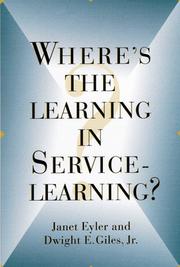| Listing 1 - 10 of 16 | << page >> |
Sort by
|
Book
ISBN: 1446358445 4057664608789 9700000038785 Year: 2012 Publisher: Newton Abbot, England : F&W Media International, Ltd,
Abstract | Keywords | Export | Availability | Bookmark
 Loading...
Loading...Choose an application
- Reference Manager
- EndNote
- RefWorks (Direct export to RefWorks)
This is Thomas Keightley's history of three secret societies of the Middle Ages: the Assassins, the Templars and the Fehmgerichte. A well-researched and detailed work on secret societies, Keightley gives a rather contemporary view, and with Dan Brown's The Da Vinci Code bringing secret societies to the attention of modern audiences over recent years, this ebook is even more interesting to readers today.The Assassins chapter begins by introducing the state of the world in the Seventh Century, a brief history of Islam, and Keightley then goes on to discuss many of the influential members, as well as the organisation of the society. In the chapter on The Templars, Keightley is critical of Medieval Christianity, and the Christian thought which fueled the Crusades. Keightley presents an interesting case for the respect and bravery of the Templars and their unjust trial and subsequent dissolution. The chapter introduces the Templars, their heroism, the classes of the Templars and provinces. The shorter final chapter on The Secret Tribunals of Westphalia is perhaps the most interesting through examining this little-known group which helped to preserve order during a period of chaos in Germany in the 14th and 15th centuries.The Paranormal, the new ebook series from F&W Media International Ltd, resurrecting rare titles, classic publications and out-of-print texts, as well as new ebook titles on the supernatural - other-worldly books for the digital age. The series includes a range of paranormal subjects from angels, fairies and UFOs to near-death experiences, vampires, ghosts and witchcraft.
Secret societies. --- Fraternities --- Hazing --- Rites and ceremonies --- Ritual --- Societies --- Sociology --- Initiations (into trades, societies, etc.)

ISSN: 01698958 ISBN: 9789004150805 9004150803 9786611398972 1281398977 904740937X 9789047409373 9781281398970 9789047409373 661139897X Year: 2006 Volume: 277. Publisher: Leiden: Brill,
Abstract | Keywords | Export | Availability | Bookmark
 Loading...
Loading...Choose an application
- Reference Manager
- EndNote
- RefWorks (Direct export to RefWorks)
This volume maintains that contemporary events, ideologies, and institutions have shaped scholarly work on the ancient Roman collegia , a group of institutions known principally from epigraphic and legal sources. It traces the origins of thinking on the subject from the creation of the Corpus Inscriptionum Latinarum through the political and social movements of the 19th and 20th centuries in Western Europe. The bulk of the book focuses particularly on the intersection of scholarship and economic theory in Fascist Italy, as the collegia were analysed by the Istituto di Studi Romani, incorporated into the Mostra Augustea della Romanità , and ultimately championed by the Minister of National Education, Giuseppe Bottai, in 1939.
Fraternal organizations --- Societies --- Mutuelles --- Associations --- History. --- History --- Histoire --- Benefit societies --- Benevolent societies --- Fraternal benefit societies --- Friendly societies --- Mutual aid societies --- Mutual benefit associations --- Fraternal organizations - History. --- Greek letter societies --- College fraternities --- College sororities --- Fraternities --- Sororities, Greek letter
Book
ISBN: 0814344186 0814344194 Year: 2018 Publisher: Wayne State University Press
Abstract | Keywords | Export | Availability | Bookmark
 Loading...
Loading...Choose an application
- Reference Manager
- EndNote
- RefWorks (Direct export to RefWorks)
Going Greek offers an unprecedented look at the relationship between American Jewish students and fraternity life during its heyday in the first half of the twentieth century. More than secret social clubs, fraternities and sororities profoundly shaped the lives of members long after they left college⁰́₄often dictating choices in marriage as well as business alliances. Widely viewed as a key to success, membership in these self-governing, sectarian organizations was desirable but not easily accessible, especially to non-Protestants and nonwhites. In Going Greek Marianne Sanua examines the founding of Jewish fraternities in light of such topics as antisemitism, the unique challenges faced by Jewish students on campuses across the United States, responses to World War II, and questions pertaining to assimilation and/or identity reinforcement.
Greek letter societies. --- Jewish youth --- Jewish college students --- Societies, etc. --- History. --- Conduct of life. --- College fraternities --- College sororities --- Fraternities --- Sororities, Greek letter --- Societies --- College students, Jewish --- College students --- Jewish students --- Youth, Jewish --- Youth --- Social & cultural history
Book

ISBN: 0945802129 3791312308 Year: 1993 Publisher: New York Museum for African Art
Abstract | Keywords | Export | Availability | Bookmark
 Loading...
Loading...Choose an application
- Reference Manager
- EndNote
- RefWorks (Direct export to RefWorks)
Africa --- Art, African --- Secret societies --- Symbolism in art --- Art africain --- Sociétés secrètes --- Symbolisme dans l'art --- Exhibitions --- Influence --- Expositions --- Art, Black --- Exhibitions. --- Sociétés secrètes --- Allegory (Art) --- Signs and symbols in art --- Art --- Fraternities --- Hazing --- Rites and ceremonies --- Ritual --- Societies --- Sociology --- Initiations (into trades, societies, etc.) --- Influence&delete&

ISBN: 2844541070 9782844541079 Year: 2001 Publisher: Paris: Dervy,
Abstract | Keywords | Export | Availability | Bookmark
 Loading...
Loading...Choose an application
- Reference Manager
- EndNote
- RefWorks (Direct export to RefWorks)
Rosicrucians --- Secret societies --- Rose-Croix --- Sociétés secrètes --- History. --- Histoire --- 061.236.5 --- Rozenkruisers. Rozekruisers --- 061.236.5 Rozenkruisers. Rozekruisers --- Sociétés secrètes --- Fraternities --- Hazing --- Rites and ceremonies --- Ritual --- Societies --- Sociology --- Initiations (into trades, societies, etc.) --- Rosaecrucians --- Occultists --- History --- Europe --- Rosicrucians - History --- Secret societies - Europe - History

ISBN: 0787944831 9780787944834 9780470907467 0470907460 Year: 1999 Publisher: San Francisco, Calif. : Jossey-Bass,
Abstract | Keywords | Export | Availability | Bookmark
 Loading...
Loading...Choose an application
- Reference Manager
- EndNote
- RefWorks (Direct export to RefWorks)
As academic service-learning continues to grow rapidly, practitioners are discovering a pressing need for solid empirical research about learning outcomes. Where's the Learning in Service-Learning? helps define learning expectations, presents data about learning, and links program characteristics with learning outcomes. It is the first book to explore the experience of service-learning as a valid learning activity.
Student service --- College students --- Etudiants bénévoles en service social --- Etudiants --- Service learning --- Learning. --- Students. --- Universities. --- #SBIB:316.334.1O440 --- #SBIB:316.334.1O367 --- University --- School Enrollment --- Enrollment, School --- Enrollments, School --- School Enrollments --- Student --- Education --- College Fraternities and Sororities --- Memory Training --- Phenomenography --- Training, Memory --- Memory Consolidation --- Onderwijsgedrag: algemeen --- Onderwijssociologie: curricula van universitair onderwijs --- United States. --- Etudiants bénévoles en service social --- Learning --- Students --- Universities
Book

ISBN: 3657777814 3506777815 Year: 2016 Publisher: Paderborn Brill | Schöningh
Abstract | Keywords | Export | Availability | Bookmark
 Loading...
Loading...Choose an application
- Reference Manager
- EndNote
- RefWorks (Direct export to RefWorks)
Die Armee ist ein zentraler Machtfaktor im Staat, militärische Informationen sind grundsätzlich gesetzlich geschützt. Das Militär bildet zudem ein soziales System mit eigenen Normen, Ritualen und Symbolen. Die hierarchische Struktur und das starke Berufsethos prägen das Militär bis heute. Innerhalb dieses Rahmens bildeten sich immer wieder geheime Netzwerke von Militärangehörigen mit abweichenden Verhaltenskodizes. Sie erregten häufig den Verdacht, gegen das eigene Militärsystem oder den Staat gerichtet zu sein. Die Autorinnen und Autoren des Bandes erkunden die Wechselwirkungen zwischen Geheimbundorganisationen, Geheimnisträgern, Verschwörern und dem Militär - von Freimaurern und Illuminaten bis zum Stauffenberg-Kreis.
Secret societies --- Armed Forces --- Conspiracies --- History --- Political activity --- Political crimes and offenses --- Armed Services --- Military, The --- Military art and science --- Disarmament --- Fraternities --- Hazing --- Rites and ceremonies --- Ritual --- Societies --- Sociology --- Initiations (into trades, societies, etc.) --- Offiziere --- Militär --- Illuminaten --- Geheimbünde --- Freimaurer --- Verschwörungen
Periodical
ISSN: 15452786 00030996 Year: 1942 Publisher: New Haven, Conn. : Society of the Sigma Xi,
Abstract | Keywords | Export | Availability | Bookmark
 Loading...
Loading...Choose an application
- Reference Manager
- EndNote
- RefWorks (Direct export to RefWorks)
Greek letter societies --- Research --- Science --- Society of the Sigma Xi --- Sigma Xi, the Scientific Research Society of North America --- Sciences --- Recherche --- Technologie --- Greek letter societies. --- Natuurwetenschappen. --- Research. --- Science. --- Sigma Xi, the Scientific Research Society of North America. --- Society of the Sigma Xi. --- Laboratory Research --- Research Activities --- Research and Development --- Research Priorities --- Activities, Research --- Activity, Research --- Development and Research --- Priorities, Research --- Priority, Research --- Research Activity --- Research Priority --- Research, Laboratory --- College fraternities --- College sororities --- Fraternities --- Sororities, Greek letter --- Sigma Xi --- Societies --- Ethics, Research --- Scientific Research Society of America --- Sigma Xi, the Scientific Research Society --- Technology --- Associations désignées par des lettres grecques --- Recherche. --- Sciences. --- research (function) --- sciences (philosophy) --- Natural science --- Natural sciences --- Science of science --- Science research --- Scientific research --- Information services --- Learning and scholarship --- Methodology --- Research teams --- Publications périodiques. --- Recherche scientifique et technique. --- Sigma Xi, the Scientific Research Society. --- Science and technology. --- Technology. --- Applied science --- Arts, Useful --- Science, Applied --- Useful arts --- Industrial arts --- Material culture --- Industries
Periodical
ISSN: 19406487 00317217 Year: 1916 Publisher: Kansas City, MO : Arlington, VA : Phi Delta Kappa, PDK International
Abstract | Keywords | Export | Availability | Bookmark
 Loading...
Loading...Choose an application
- Reference Manager
- EndNote
- RefWorks (Direct export to RefWorks)
Phi Delta Kappan, a professional magazine for educators, features articles on education practice, research, policy, issues, and trends. Frequent topics include school improvement, leadership, standards, accountability, the achievement gap, classroom practice, professional development, teacher education, research, technology and innovations in teaching and learning, state and federal policy, and education and the global economy. The PDK/Gallup poll on public attitudes toward education is published each September. Columns include national education issues, research and development, innovation, thoughts on teaching, legal issues, a variety of international writers, and editorial opinion. The magazine is published eight times a year, September through May.
Education --- Greek letter societies --- Éducation --- Associations désignées par des lettres grecques --- Education. --- Greek letter societies. --- Onderwijs. --- Éducation. --- Enseignement. --- Pédagogie. --- Politique éducative. --- Recherche en éducation. --- Réforme du système éducatif. --- Services aux élèves. --- Système éducatif. --- États-Unis. --- College fraternities --- College sororities --- Fraternities --- Sororities, Greek letter --- Children --- Education of children --- Education, Primitive --- Human resource development --- Instruction --- Pedagogy --- Schooling --- Students --- Youth --- Societies --- Civilization --- Learning and scholarship --- Mental discipline --- Schools --- Teaching --- Training --- Éducation --- Associations désignées par des lettres grecques --- Éducation. --- Pédagogie. --- Politique éducative. --- Recherche en éducation. --- Réforme du système éducatif. --- Services aux élèves. --- Système éducatif. --- États-Unis. --- 81.00 teaching: general. --- 81.01 history of teaching. --- Activities, Educational --- Educational Activities --- Workshops --- Literacy Programs --- Training Programs --- Activity, Educational --- Educational Activity --- Literacy Program --- Program, Literacy --- Program, Training --- Programs, Literacy --- Programs, Training --- Training Program --- Workshop --- education
Periodical
Abstract | Keywords | Export | Availability | Bookmark
 Loading...
Loading...Choose an application
- Reference Manager
- EndNote
- RefWorks (Direct export to RefWorks)
College students --- Psychotherapy. --- Students --- Mental health services --- psychology. --- Mental health services. --- Mental Health Services. --- Clinical Psychotherapists --- Logotherapy --- Psychotherapists --- Clinical Psychotherapist --- Logotherapies --- Psychotherapies --- Psychotherapist --- Psychotherapist, Clinical --- Psychotherapists, Clinical --- College life --- Universities and colleges --- University students --- Education --- Neurolinguistic Programming --- Sensory Art Therapies --- Psychotherapy --- psychology --- School Enrollment --- Enrollment, School --- Enrollments, School --- School Enrollments --- Student --- College Fraternities and Sororities --- Schema Therapy --- Schema Therapies --- Therapies, Schema --- Therapy, Schema --- Étudiants --- Services de santé mentale
| Listing 1 - 10 of 16 | << page >> |
Sort by
|

 Search
Search Feedback
Feedback About UniCat
About UniCat  Help
Help News
News